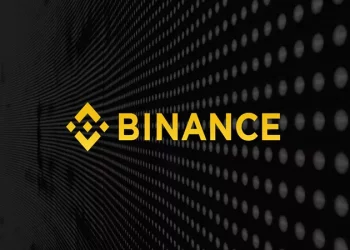As the world of cryptocurrency continues to captivate investors, Binance has emerged as a global giant in the realm of digital asset trading. As users navigate the intricacies of this platform, a common question surfaces: Is Binance a broker? Unraveling this inquiry is essential for users to comprehend the regulatory landscape and the nature of their engagement with the platform. In this article, we delve into the multifaceted facets of Binance, exploring its classification as a broker and shedding light on the implications for users and the broader cryptocurrency ecosystem.
Understanding Broker Status
Before delving into Binance’s classification, it is imperative to grasp the concept of a broker. A broker is a financial intermediary that facilitates the buying and selling of financial assets, such as stocks, bonds, or cryptocurrencies. Brokers connect buyers and sellers, executing trades on behalf of their clients and earning commissions for their services. In the context of cryptocurrency, understanding whether Binance operates as a broker is pivotal for users seeking clarity on the platform’s functions.
Binance’s Evolution and Core Functions
Founded in 2017, Binance swiftly ascended to the forefront of the cryptocurrency exchange landscape. The platform provides users with a comprehensive suite of services, including spot trading, futures trading, staking, and more. With a diverse array of listed cryptocurrencies and a user-friendly interface, Binance caters to both novice and seasoned traders, contributing significantly to the global adoption of digital assets.
However, the intricate nature of Binance’s operations prompts an exploration of whether it falls within the classification of a broker and the implications that follow.
Binance as a Broker: An In-Depth Analysis
As of my last knowledge update in January 2022, Binance is primarily recognized as a cryptocurrency exchange, facilitating the trading of digital assets. While it possesses characteristics of a broker, such as connecting buyers and sellers, the distinction lies in the comprehensive suite of services it offers.
Binance not only enables spot trading but also provides futures and margin trading services, allowing users to engage in leveraged positions. This expansive array of services goes beyond the traditional scope of a broker. In the cryptocurrency space, exchanges often offer a broader range of functionalities compared to traditional brokers, blurring the lines between these categories.
Regulatory Considerations: A Shifting Landscape
The regulatory environment for cryptocurrency exchanges is dynamic, with authorities worldwide grappling to establish comprehensive frameworks. Binance, being a global platform, operates within the regulatory constraints of various jurisdictions. Regulatory developments and compliance efforts play a pivotal role in determining how Binance is classified within these frameworks.
As of now, Binance has taken steps to comply with regulatory requirements, obtaining licenses in certain jurisdictions and implementing robust Know Your Customer (KYC) and Anti-Money Laundering (AML) procedures. However, the regulatory landscape is fluid, and Binance continues to adapt its operations to align with evolving standards.
User Implications: Security and Transparency
For users entrusting their funds to Binance, understanding the platform’s status as a broker is crucial. While Binance facilitates the trading of digital assets, users should be aware of the diverse set of services it offers, extending beyond traditional brokerage functions.
The security of user funds and transparent communication about regulatory compliance are paramount considerations. Binance’s commitment to implementing security measures, such as two-factor authentication and withdrawal whitelists, enhances user confidence in the platform’s integrity.
See Also: What is “Buy Long, Sell Short” on Binance: A Full Guide
Conclusion: Navigating the Cryptocurrency Landscape
In the dynamic and evolving landscape of cryptocurrency, the classification of platforms like Binance raises intriguing questions. As of now, Binance is recognized as a cryptocurrency exchange with broker-like features. Its comprehensive suite of services reflects the evolution of the cryptocurrency industry, where exchanges go beyond traditional brokerage roles.
Users should stay informed about regulatory developments and Binance’s ongoing efforts to comply with emerging standards. As the cryptocurrency ecosystem matures, the distinctions between exchanges, brokers, and other financial intermediaries may become more defined. For now, users can navigate the world of digital assets with confidence, knowing that platforms like Binance are actively engaging with regulators to uphold industry standards and ensure a secure trading environment.
Related topics:

















